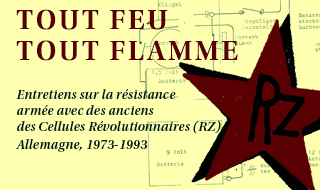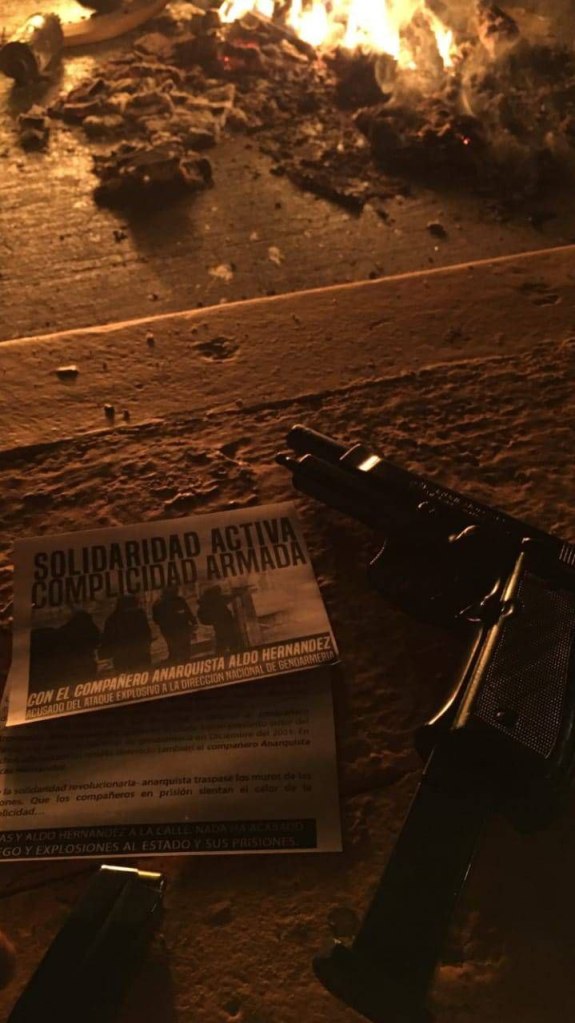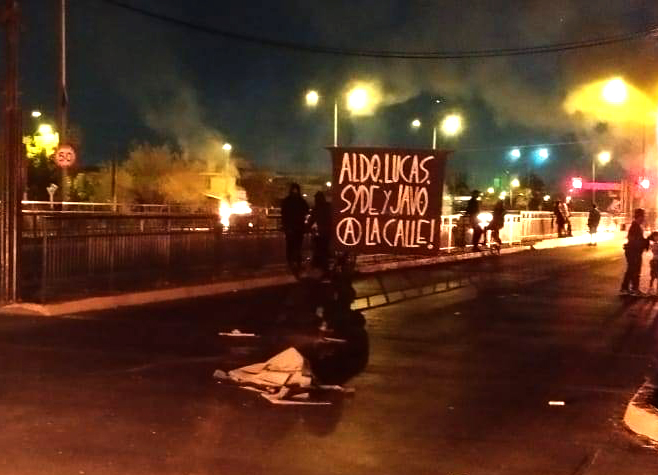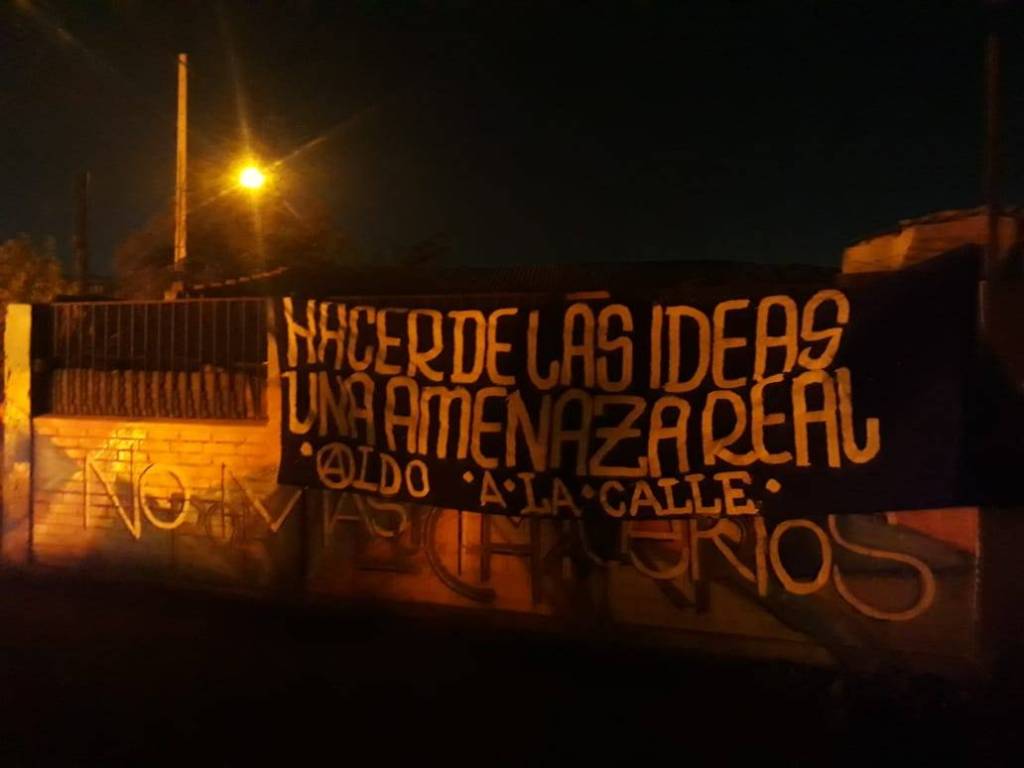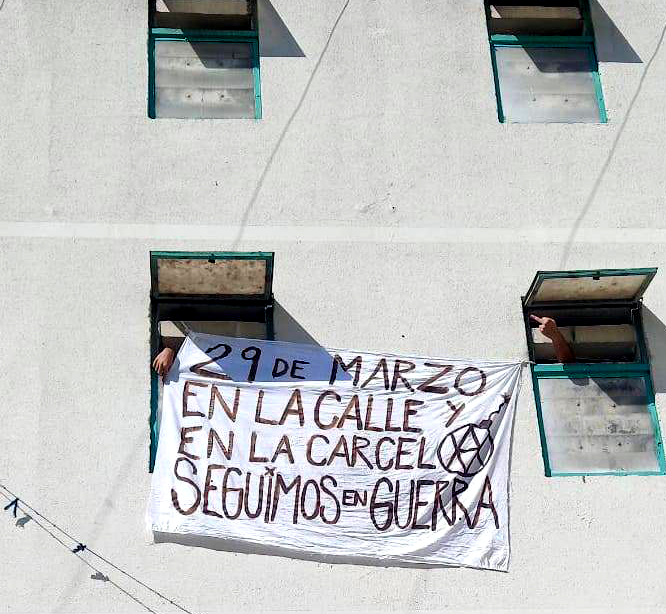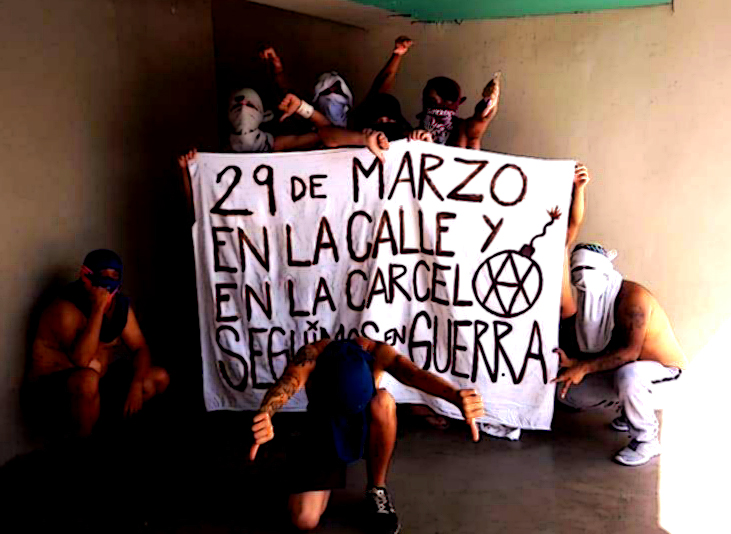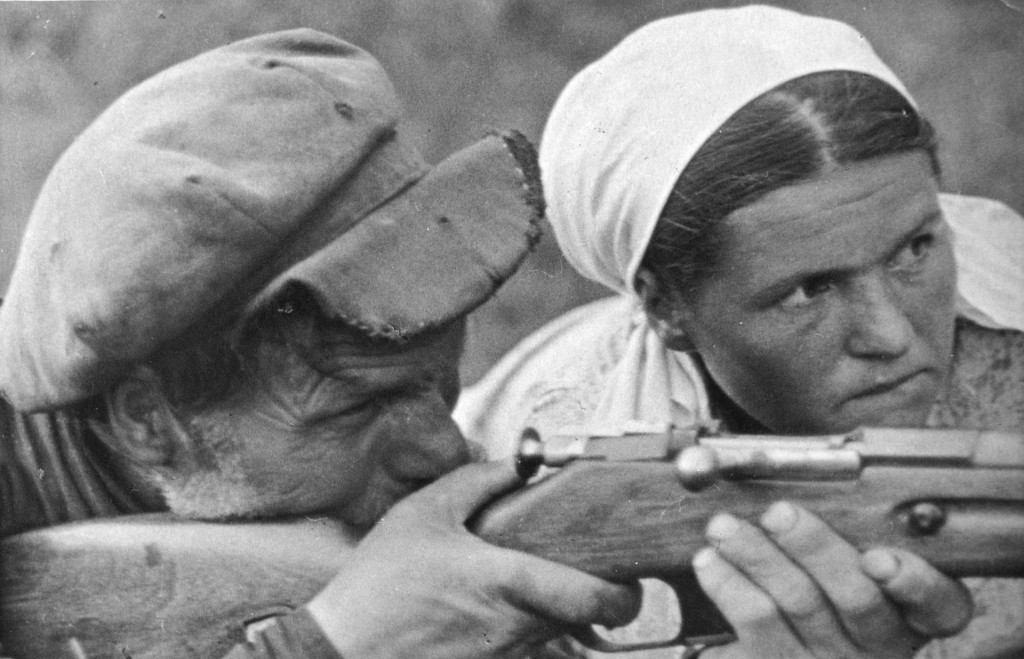
Insurrectionary anarchism is not an ideological solution to all social problems, a commodity on the capitalist market of ideologies and opinions, but an on-going praxis aimed at putting an end to the domination of the state and the continuance of capitalism, which requires analysis and discussion to advance. We don’t look to some ideal society or offer an image of utopia for public consumption. Throughout history, most anarchists, except those who believed that society would evolve to the point that it would leave the state behind, have been insurrectionary anarchists. Most simply, this means that the state will not merely wither away, thus anarchists must attack, for waiting is defeat; what is needed is open mutiny and the spreading of subversion among the exploited and excluded. Here we spell out some implications that we and some other insurrectionary anarchists draw from this general problem: if the state will not disappear on its own, how then do we end its existence? It is, therefore, primarily a practice, and focuses on the organization of attack. These notes are in no way a closed or finished product; we hope they are a part of an ongoing discussion, and we most certainly welcome responses. Much of this comes straight from past issues of Insurrection and pamphlets from Elephant Editions.
1. The State Will Not Just Disappear; Attack
-
The State of capital will not “wither away,” as it seems many anarchists have come to believe — not only entrenched in abstract positions of ‘waiting,’ but some even openly condemning the acts of those for whom the creation of the new world depends on the destruction of the old. Attack is the refusal of mediation, pacification, sacrifice, accommodation, and compromise.
-
It is through acting and learning to act, not propaganda, that we will open the path to insurrection, although propaganda has a role in clarifying how to act. Waiting only teaches waiting; in acting one learns to act.
-
The force of an insurrection is social, not military. The measure for evaluating the importance of a generalized revolt is not the armed clash, but on the contrary the amplitude of the paralysis of the economy, of normality.
2. Self-Activity versus managed revolt: from insurrection to revolution
-
As anarchists, the revolution is our constant point of reference, no matter what we are doing or what problem we are concerned with. But the revolution is not a myth simply to be used as a point of reference. Precisely because it is a concrete event, it must be built daily through more modest attempts which do not have all the liberating characteristics of the social revolution in the true sense. These more modest attempts are insurrections. In them the uprising of the most exploited and excluded of society and the most politically sensitized minority opens the way to the possible involvement of increasingly wider strata of exploited on a flux of rebellion which could lead to revolution.
-
Struggles must be developed, both in the intermediate and long term. Clear strategies are necessary to allow different methods to be used in a coordinated and fruitful way.
-
Autonomous action: the self-management of struggle means that those that struggle are autonomous in their decisions and actions; this is the opposite of an organization of synthesis which always attempts to take control of struggle. Struggles that are synthesized within a single controlling organization are easily integrated into the power structure of present society. Self-organized struggles are by nature uncontrollable when they are spread across the social terrain. Continue reading “Some notes on Insurrectionary Anarchism”


